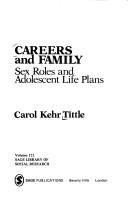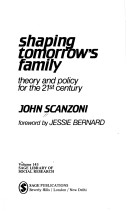SAGE Library of Social Research
3 total works
The Sexual Bond
by John Scanzoni, Karen Polonko, Jay D. Teachman, and Linda Thompson
First addressing the rationale for this shift in thinking, they then present their major theoretical assumptions, including their reliance on a dynamic version of systems theory. They then identify the sexually bonded primary relationship, distinguishing it from those based on ties of blood or friendship and discuss how recent changes in definitions of sexuality fit within their model. The authors consider the issue of the development of the relationship and its influence with the environment and look at the impact of women′s work on primary relationships.
′The authors are to be commended for their attempt to bring order to the complexities of family decisioning, and their work should stimulate further research in the area. Their focussing upon couples and families rather than individuals and their extension of the concept of "family" to nontraditional arrangements also are commendable.′ -- Journal of Marriage and the Family, November 1981
′This book...is an important contribution to family sociology...(It) deserves the serious attention of family sociologists. Moreover, its extensive bibliography and use of case studies makes it well-suited for classroom use.′ -- Social Forces, Vol 60 No 4, June 1982
′This very useful contribution to the subject of family decision making ought to find ready acceptance by a wide range of readers. Written in non-jargon style, teachers of family courses will find the model easy to use and the students will enjoy the "familiar" scenarios. Practitioners should especially note Part II for many illustrations of very familiar situations that show the model "in action". Indeed for anyone interested in the topic of decision making and influence in the family, this work should not be missed.′ -- Sociology, July/Aug 1982
′Family Decision-Making is a well-written, conceptually solid contribution to the family sociology literature. It is one of the best attempts to renew the emphases of sociological theory and research upon the social processes that the founding fathers of sociology focused upon in their classic treatises.′ -- Contemporary Sociology, Vol 12 No2, March 1983
`While this is a book to be read by anyone interested in the future of the family, it will be particularly helpful for those who are teaching about the family, doing family research, or engaged in setting up a better environment for the family.′ -- Family Relations, April 1984
`...this book is absorbing and illuminating for anyone working with families or marital breakdown.′ -- Crucible, July/September 1984


